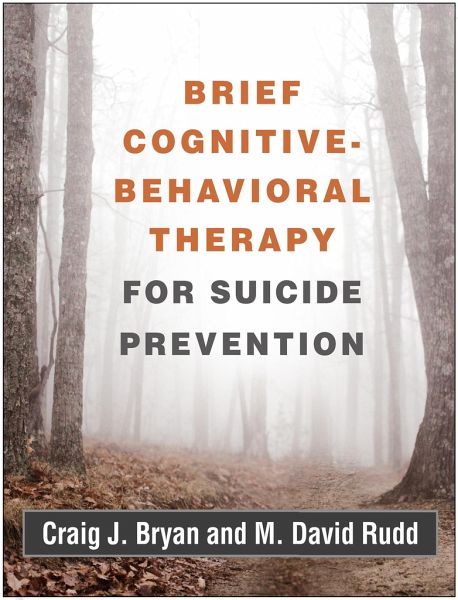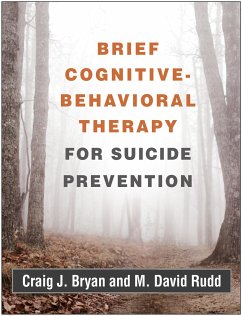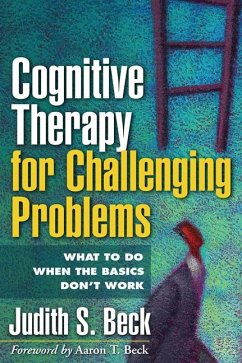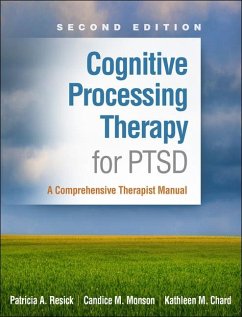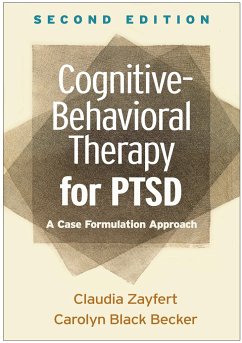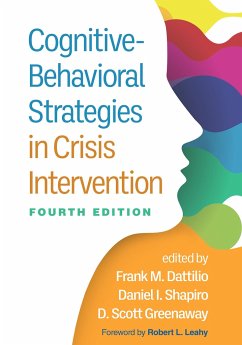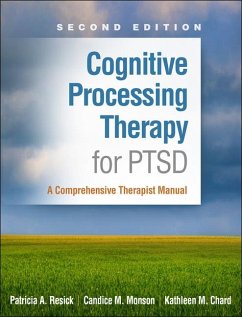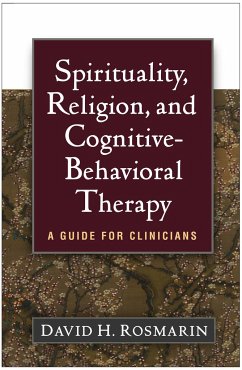Craig J. Bryan (United States University of Utah)M. David Rudd (United States University of Memphis)
Broschiertes Buch
Brief Cognitive-Behavioral Therapy for Suicide Prevention
Versandkostenfrei!
Versandfertig in 2-4 Wochen
Weitere Ausgaben:

PAYBACK Punkte
29 °P sammeln!




An innovative treatment approach with a strong empirical evidence base, brief cognitive-behavioral therapy for suicide prevention (BCBT) is presented in step-by-step detail in this authoritative manual.
Craig J. Bryan, PsyD, ABPP, is Executive Director of the National Center for Veterans Studies and Associate Professor in the Department of Psychology and the Department of Psychiatry at the University of Utah. He is an associate editor of the journal Suicide and Life-Threatening Behavior and previously served on the board of directors of the American Association of Suicidology. Dr. Bryan has received honors including the Charles S. Gersoni Military Psychology Award from Division 19 (Society for Military Psychology) and the Peter J. N. Linnerooth National Service Award from Division 18 (Psychologists in Public Service) of the American Psychological Association, as well as the Citizen Scientist Award and the Edwin S. Shneidman Award from the American Association of Suicidology. He is a University of Utah Presidential Scholar and Beacon of Excellence recipient. From 2005 to 2009, he served on active duty in the U.S. Air Force as a clinical psychologist, including a deployment to Iraq in 2009. Dr. Bryan's primary research interests include suicide prevention and posttraumatic stress disorder. He has published over 150 scientific articles and several books, most of which focus on suicide prevention, trauma, and military mental health. M. David Rudd, PhD, ABPP, is President of the University of Memphis, where he is also Distinguished University Professor of Psychology. He is Co-Founder and Scientific Director of the National Center for Veterans Studies at the University of Utah. Dr. Rudd is a Fellow of the American Psychological Association, the International Academy of Suicide Research, and the Academy of Cognitive and Behavioral Therapies, and has been elected a Distinguished Practitioner and Scholar of the National Academies of Practice in Psychology. He previously served as chair of the Texas State Board of Examiners of Psychologists, president of the Texas Psychological Association, president of the American Association of Suicidology, and a member of the American Psychological Association's Council of Representatives. Dr. Rudd's research focuses on the treatment of suicidal patients. He has published over 200 scientific articles and numerous books on the clinical care of suicidal individuals, and is considered an international leader in suicide prevention.
Produktdetails
- Verlag: Guilford Publications
- Seitenzahl: 294
- Erscheinungstermin: 17. August 2018
- Englisch
- Abmessung: 266mm x 205mm x 17mm
- Gewicht: 656g
- ISBN-13: 9781462536665
- ISBN-10: 1462536662
- Artikelnr.: 50909258
Herstellerkennzeichnung
Libri GmbH
Europaallee 1
36244 Bad Hersfeld
gpsr@libri.de
Für dieses Produkt wurde noch keine Bewertung abgegeben. Wir würden uns sehr freuen, wenn du die erste Bewertung schreibst!
Eine Bewertung schreiben
Eine Bewertung schreiben
Andere Kunden interessierten sich für



